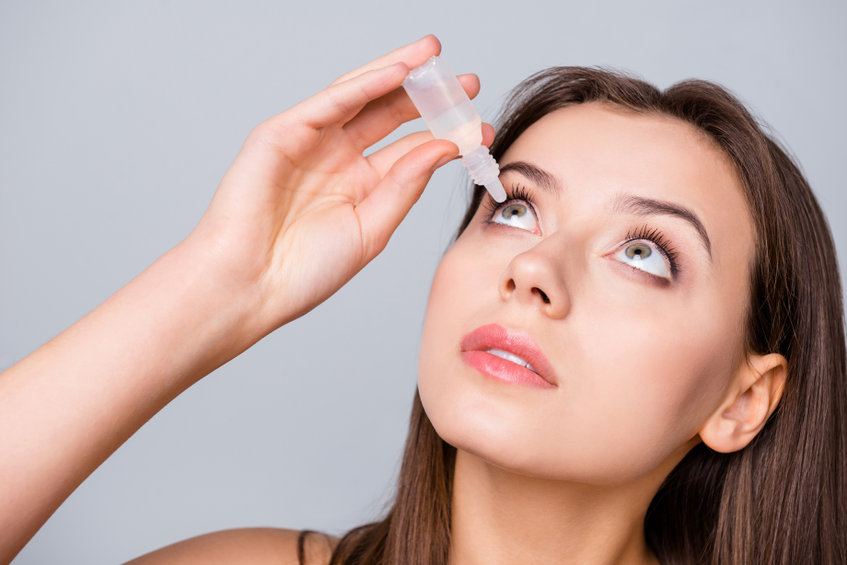Lubricating eye drops, also known as artificial tears, are a mainstay of dry eye management in clinical practice. Dry eye is one of the most common eye conditions worldwide, and affects people of all ages. As discussed in previous blogs, dry eye comes in three main forms: Evaporative, Aqueous deficient, and Inflammatory. Regardless of the underlying cause, artificial tears are usually a part of the treatment.
Artificial tears can be found in most drug and grocery stores. They are often accompanied by allergy eye drops and redness relievers. The sea of different eye drops all claiming to relieve symptoms like “dryness, itch, redness, pain, irritation” can make it difficult to choose what’s best for you and your particular condition. In general, simple lubricant eye drops are all most people need. Two of the most common brands you can trust are Refresh and Systane. These types of eye drops will only contain eye lubricants. Bottles of artificial tears will usually be packaged in 10 milliliter bottles. Packaged in this way, the expected lifespan of the bottle is around one to two months, depending on frequency of use.
Preservatives are used in eye drops to prevent microbial contamination. Historically, the most common preservative used in eye drops, including medications, has been Benzalkonium Chloride (BAK). BAK is used due to its wide availability and excellent antimicrobial properties. However, BAK is also well known to cause eye irritation, an obvious problem for a drop that is aiming to ease it. Many eye drop companies are recognizing this, and are switching to less irritating preservatives, but there is no substitute for a preservative free eye drop.
Preservative free artificial tears are recommended for people with a sensitivity to the preservatives used in conventional lubricating drops. Most people can use one or two lubricating drops per day without experiencing any adverse effects from preservatives; however, some patients may feel a worsening of their irritation from the first drop. Another common reason one may prefer preservative free is for frequent dosing throughout the day. I recommend anyone using conventional lubricating drops more than four times per day to switch to a preservative free formula. Preservative free artificial tears usually come in vials rather than bottles. These vials are intended for single use and contain around six to eight drops each. These tear vials can be recapped and used throughout the day without concern, but it is not recommended to use them the following day. I recommend patients open their drops when needed, and finish the vial before the end of the day. New bottle designs have allowed some companies to produce preservative free bottles; however, these do expire earlier than their preserved counterparts. The reason for this strict usage is due to the possibility of contamination. Without the preservatives to prevent microbial invasion, preservative free tears are much more susceptible to harboring bacteria that could cause an eye infection.
Most major artificial tear brands will manufacture a preservative free formula. My favorites are Refresh and Systane, though generics are fine as well. These formulations will come at an increased price, but for those that need them, it is well worth the improvement in symptoms. Large bulk stores like Costco and Sam’s Club will often have the best deals, but local stores will usually run sales on various eye drops, just be sure to check the expiration date. For more information, talk to your doctor and see the links below.
References:












